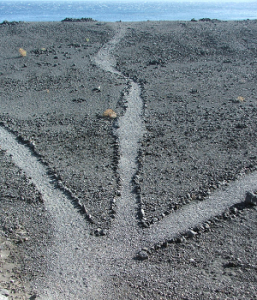
I’m always thinking about potential topics for future posts, but sometimes I don’t have to go looking for topics – the topics find me. Such was the case when I was watching the preview release of the AISC documentary “Leaning Out”. This was one of those rare situations where I could get continuing education credit for my engineering licensure while watching something that would be of general interest to non-engineers as well. Produced by the American Institute of Steel Construction to commemorate their 10th annual “Steel Day”, this excellent documentary combined a review of the history of the design and construction of the World Trade Center in NYC with a biography of its lead structural engineer, Leslie E. Robertson. Perhaps you’re wondering what this has to do with defending Christianity. Well… let’s work through that today.
In the documentary, Robertson shares that he enlisted in the Navy at age 16 to serve in WWII, where he saw 3 buddies killed. After the war, he became a pacifist, and campaigned against war and the proliferation of nuclear arms. But then he mentions that, after seeing his buddies killed, he could never believe in a benevolent God. That was a bit unexpected in an engineering documentary, but traumatic experiences can leave lasting impacts on us, as that experience did for him. Seeing your friends die is awful, whether in war (where it has to be at least somewhat expected given the fact that each side is actively trying to kill the other), or in the many ways lives are lost every day in the civilian world. What grieves me, though, is the lasting blinding effect on this otherwise brilliant designer, and knowing there are dire, eternal consequences for him that need not be. Spending the next 70+ years since WWII rejecting God, and facing an eternity separated from his Creator should have never resulted from the loss of his friends, thus making a tragic event much worse. But what of his reasoning, that a benevolent God would not let his friends die?
I don’t know if he’s really thought through what God “not letting his friends die” would entail. Should God alter the thoughts of enemy soldiers so they never target them? Should He miraculously alter the trajectory of incoming shells, or make bullets bounce off his friends? Not to be irreverent about the death of his friends, but saying a good God wouldn’t let your friends die, and acknowledging what that would entail, are two different things. I’m sure, like most engineers, Robertson has had a critic or two say he should’ve done things differently on a project. In fact, he did take some unwarranted criticisms after September 11th from people looking for anyone to blame for the deaths of their loved ones in the collapse of the towers. Yet he would be completely justified in saying that those people didn’t understand the extreme detail and care he poured into that design. Could they have done any better if they were in the same situation? I think not. Yet, sadly, that is exactly what he is doing to God when he says God shouldn’t have let things happen the way they did. I have a lot of respect for him as a brilliant engineer, but he’s keeping a double standard when he defends his own designs, but doesn’t allow that God might have His own reasons as well.
Robertson’s very ability to reject God like he has is proof that the presence of evil or suffering is not an adequate reason to reject God. Free will, the ability to choose between alternative options, is a gift from God. He could’ve easily made us like robots, repeating “I love you, Lord” when programmed to do so, and singing His praises when He hit our “Play” button. But forced love isn’t really love, is it? Instead, God gave us the option to truly love Him, which also means the potential to truly reject Him. And, sadly, free will brings other consequences as well. We can freely love our fellow humans, or freely do them harm, even killing them, just as Robertson’s friends were killed. Nevertheless, the fact that He’s given us this capacity to choose between good and evil, and the all-too-observable fact that we often choose evil, does nothing to negate either God’s power, goodness, or ultimate existence. Tragedies like what Leslie Robertson witnessed don’t cause me to doubt the goodness of God, but rather the goodness of man.
Robertson’s rejection of God mirrors the old reasoning of Epicurus, which assumed God’s benevolence is in opposition to His power. For instance, “If He’s omni-benevolent, He isn’t omnipotent, because He didn’t prevent situation X from happening; or if He’s omnipotent, He isn’t omni-benevolent, because He still didn’t prevent situation X from happening.” God not acting the way we want Him to act is seen as either a sign of powerlessness to change the situation, or apathy regarding it. But this is to ignore the fact that God is a free agent. He’s not a force of nature, like gravity, which must act a certain way under certain circumstances. Just because God has the power to do something doesn’t mean He has to, or even that He should. It is entirely possible that God has other priorities than we do, and, given our very finite minds and His omniscience, it’s rather likely that His priorities are sorted out better than ours. If this has been a sticking point for you like it has for Mr. Robertson, I urge you – plead with you – to not let this issue keep you from being reconciled with your loving Creator.




